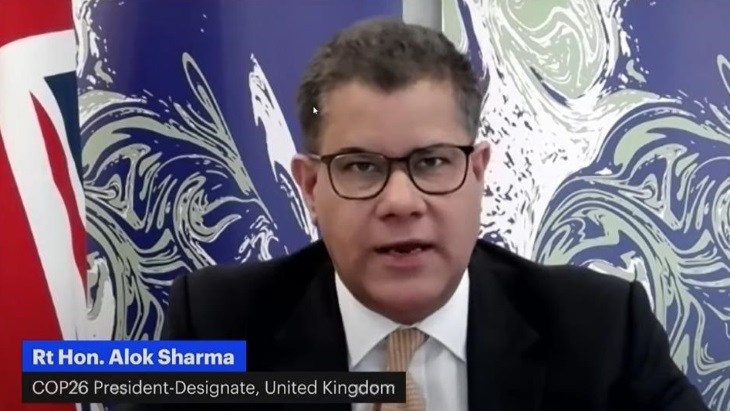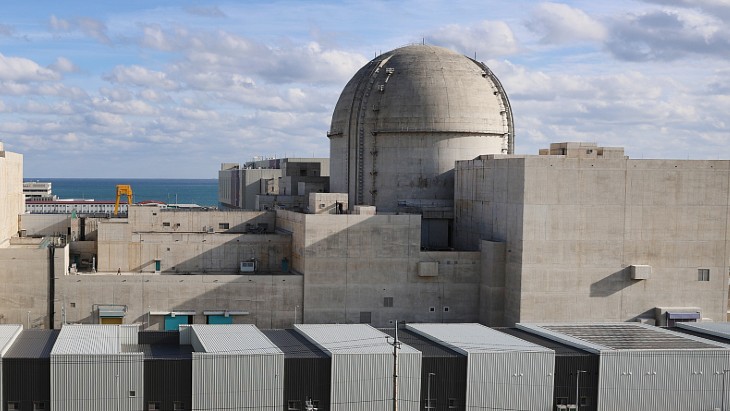"In 2015, the world came together and forged the Paris Agreement and we established a shared goal to limit average global temperature rises to below 2 degrees and closer to a 1.5 degree target. And achieving that goal relies on the world reaching net zero by the middle of the century.
Seventy percent of the world's economies are covered by the net-zero targets and of course that it positive and we call on all countries to commit to a net-zero world. But not enough is being done to meet that net-zero target. On our current course we are heading for global temperature rises of over 3 degrees. That will cause devastation in each and every country that is represented here today in this conference. And in many cases it will be the catalyst for an apocalyptic future. So we must do much more now to turn remote targets into immediate action because we know that to meet the temperature goals of the Paris Agreement, we need to halve global emissions by 2030.
We simply cannot afford another decade of deliberation. We need this to be the decade of delivery and we need countries to act by making credible plans to reach net-zero targets. That includes ambitious Nationally Determined Contributions and, very importantly, putting in place policies and investments now to meet the targets. That's policies like ending the use of coal; that's absolutely paramount. The 500 gigawatts' worth of new coal power stations that are planned around the world is quite frankly an anathema to the Paris Agreement.
We also need countries to set a date to move to 100% zero-emission vehicle sales and we need the G7 countries leading the way. And of course donor countries must honour their commitment to raise that USD100 billion a year in international climate finance. And we also need to get private finance flowing. So my message to donor countries is very, very clear: Without adequate finance the task ahead is well-nigh impossible.
But as well as taking action individually, countries must work together. The emissions reductions required to keep the 1.5 degrees target within reach rely on rapid structural change across the entire global economy, and these are only achievable if we collaborate. And that collaboration needs to be across borders, across society, with business, investors, civil society, governments of all levels, working together.
That is why I have made enhancing international collaboration a key goal of the UK's COP26 presidency. This quite frankly is not a matter of shouldering a burden between us, but of sharing an opportunity. The move to a clean economy benefits us all, through creating jobs, spurring sustainable development, and cleaning up our air. And by working together, we can get the transition going faster in at least four ways. First, we can create strong incentives for investment. Second, we can innovate faster. Third, we can achieve economies of scale. And four, we can create level playing fields to prevent polluting incumbents undercutting clean alternatives.
But we will only access these gains if we tailor our approach to each sector, responding to their particular markets and challenges, and getting the key players around the table. That is the approach that we are taking in our COP26 campaigns in three critical areas, in energy, transport and nature, which together make up almost 60% of global emissions.
We must place focused collaboration at the heart of international efforts on climate change over the coming decade and we must build dedicated international forums for international collaboration in each of the main emitting sectors.
Our task is urgent, but with immediate action and strong collaboration, we can make this the decade of delivery. A decade when we keep the 1.5 degree target within reach, a decade where we create jobs and prosperity and a decade in which we protect our planet for future generations."





_72306.jpg)


_49562.jpg)



